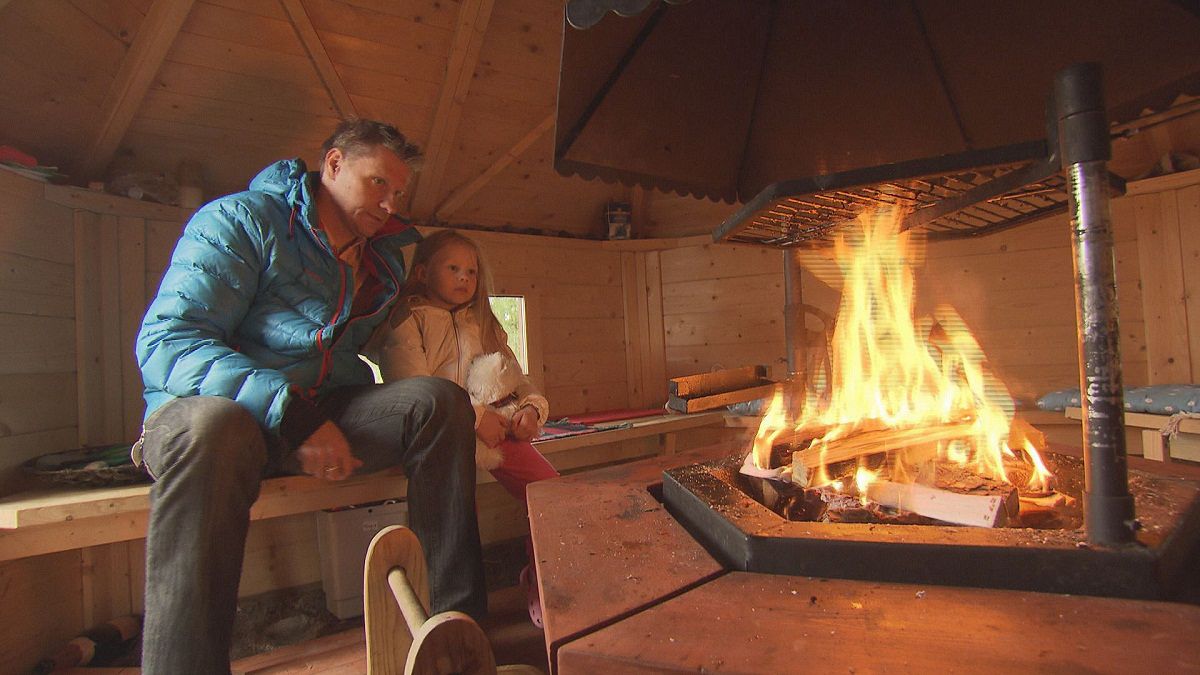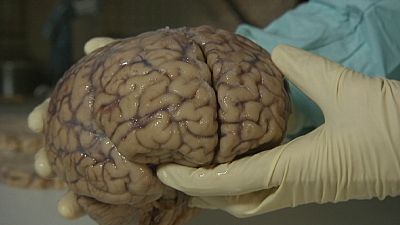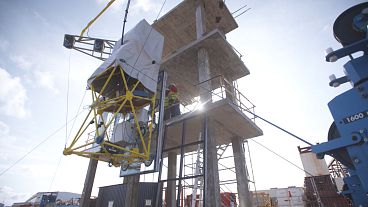Jouni Salmenjaakko, once a busy executive manager, now spends all his time with his family at their home in Turku in southern Finland. Brain injuries suffered in a car crash during a business trip in Dubai have left the 47-year-old unable to work.
Jouni’s memories of the incident are at once both vivid and vague: “My head went actually back first, then in front. Then I hit my head into the seat of the driver. And I was rolling inside the car somewhere, I don’t have any picture of that anymore,” .
The severity of his injuries only became apparent some time after the accident. He would get regular blackouts. He lost mobility in parts of his body.
Rehabilitation has helped improve his quality of life. But problems remain: “I’m living with constant pain and with many kinds of difficulties; with the balance, with the memory. I can not walk here alone; I can get lost. So it is about learning news ways of living with new rules”.
Is there a way for traumatic brain injury victims like Jouni get a second chance at a normal life?
Traumatic brain injuries, or TBIs, are difficult to treat. As every trauma is different, and because our brains control virtually all bodily functions it is often a challenge for neurologists to offer a clear diagnosis, treatment and rehabilitation.
To that end a European research project has developed a huge interactive database of TBI-related physiology patterns to help doctors help their patients, with comprehensive and valuable information.
Olli Tenovuo, Neurologist, Turku University Hospital explains the content: “All (the patient’s) clinical background. What kind of diseases has the patient had before? Are there any earlier injuries, and what kind of injuries? What kind of drugs have been used for treatments? Also what does the medical imaging tell us or what does the blood biomarkers (blood samples) tell us”.
The database allows neurologists to compare their patients’ cases with similar ones.
The project’s biomedical engineers combined algorithms and statistical models to enable analysts to accurately predict the outcome of planned treatments for individual patients.
“There is quite often missing data. It is not always possible to take pictures, or to take blood samples in certain circumstances, says Mark van Gils, the VTT/TBICare project coordinator.
“So what we are doing is to develop robust, reliable metasets and are understandable for clinicians”
Jouni is now fully engaged in a customised rehabilitation progamme, that has even included making a speech at a seminar on traumatic brain injuries.
After some difficult months, he says he’s now looking to the future: “I’m trying to find a good balance in my life. From music, from friends. Maybe soon I can engage in some kind of voluntary work, maybe when time goes I can engage in some voluntary work with other patients who are in a similar situation, maybe I can support them. Things like that”.




